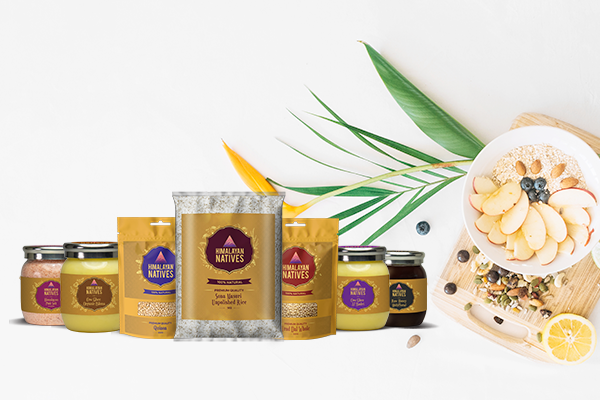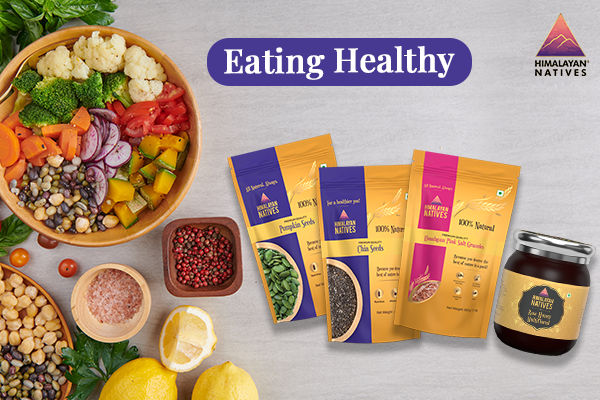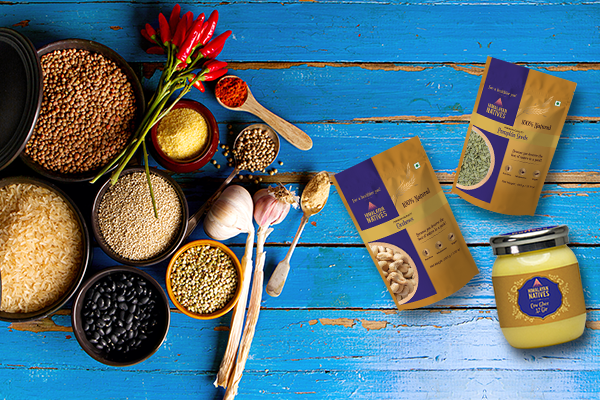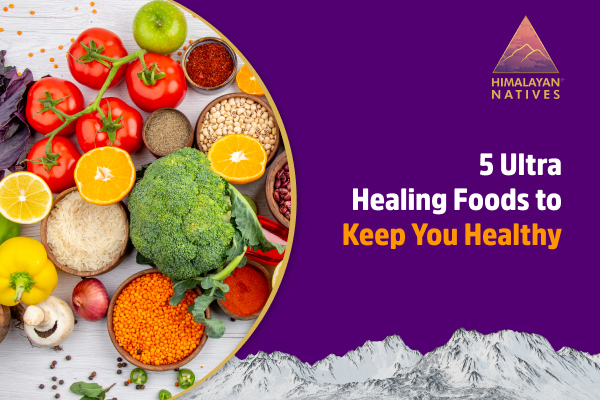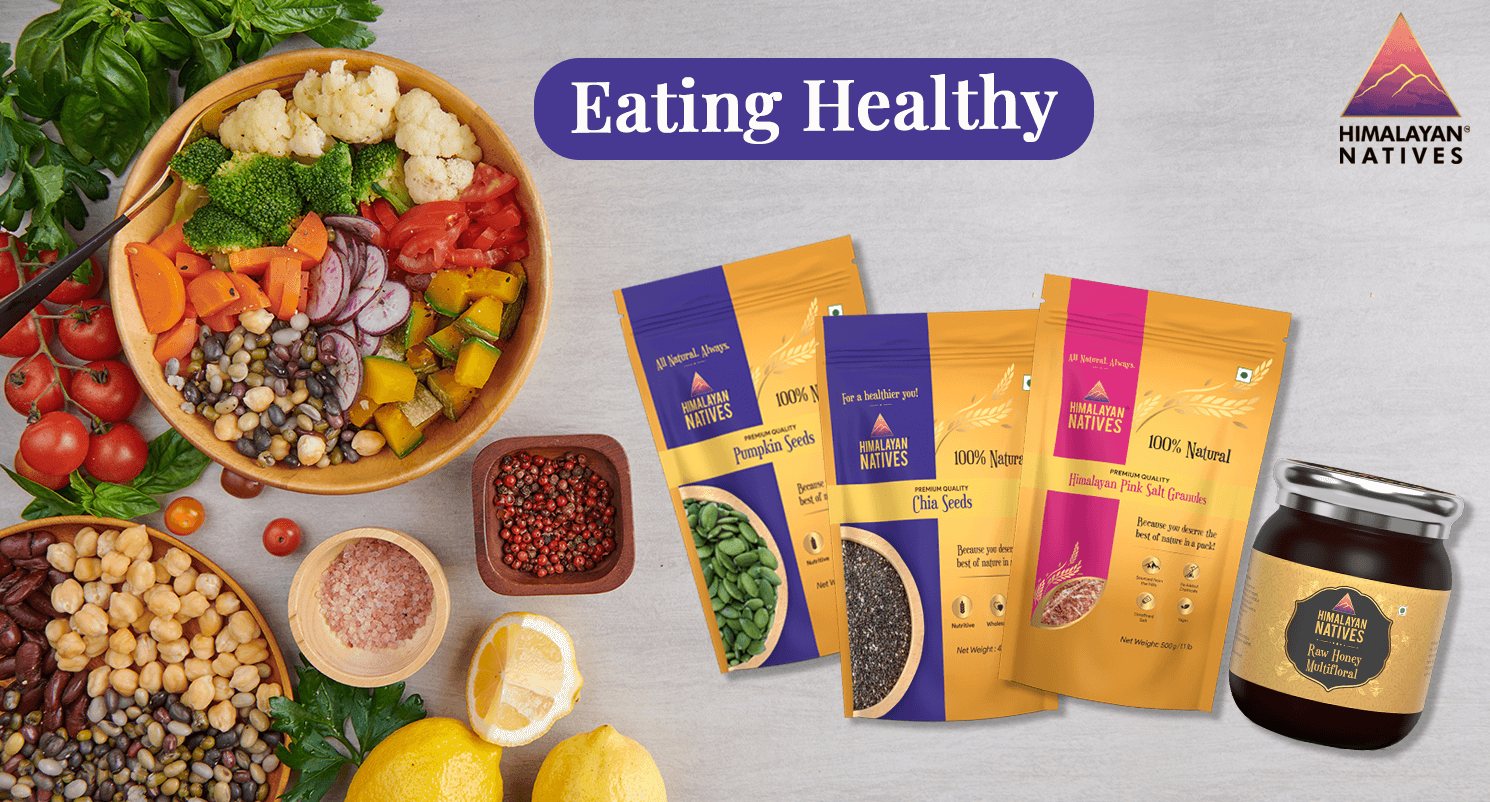
Eating patterns are rapidly changing over the world. People are recognising that leading a healthy lifestyle helps prevent chronic diseases and long-term illnesses, as well as enhances longevity.
Everyone is increasingly consuming natural foods and focusing on developing healthy behaviours. Nutrition from food that is natural and unadulterated is really important.
Our predecessors had little to worry about when it came to food because most of it was available in its natural state.
Despite their low resources, they primarily ate organic, natural, and sustainable meals that were a part of a healthy and balanced diet.
People are turning to healthy eating habits as they become more aware of the negative effects of processed foods, artificial fertilisers, and pesticides used in agriculture.
Despite adhering to varying standards, several food labels promote themselves as natural, organic, and sustainable.
What is clean eating?
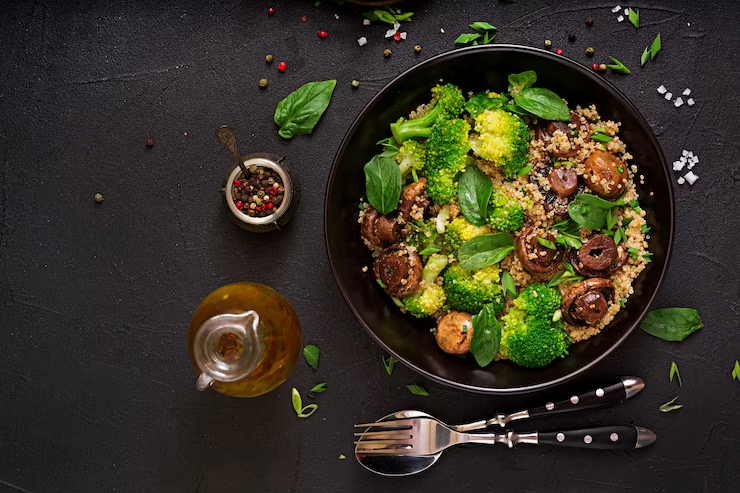
Your body receives nourishment from clean eating in the form of nutritious foods. Clean meals provide your body with an abundance of vitamins and minerals, high-quality protein, and healthy fats.
This helps as it boosts heart and brain health, helps you lose weight, strengthens your immune system, and gives you more energy. Foods that have been prepared naturally have more flavour.
So, let's define these terms first before we discuss the health advantages of clean eating:
Organic: Eco-friendly farming practices are used to produce organic meals. They are grown without the use of genetic engineering, artificial fertilisers, or pesticides.
Sustainable Food: Sustainable food production implies ethical social and environmental practices. To protect the environment, it can be grown using organic practices or more traditional ones.
Natural Food: Natural food has had little to no processing and being free of artificial colouring, flavouring, or preservatives.
Benefits of Eating Healthy
A good diet has various advantages, such as strengthening bones, defending the heart, preventing disease, and improving mood.
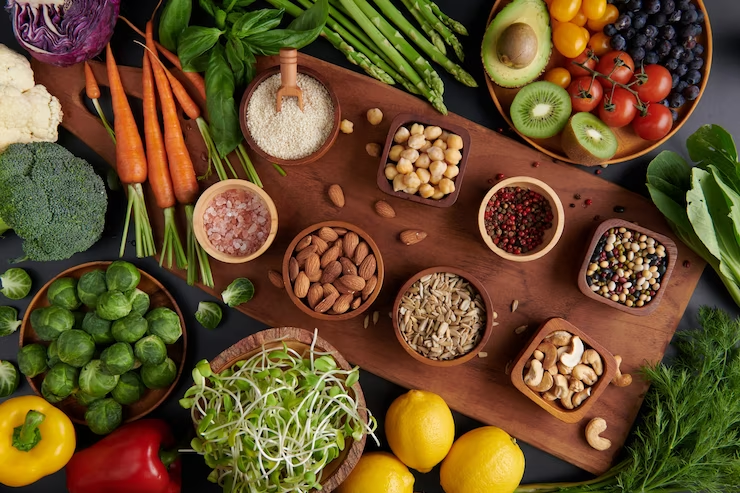
There are some benefits that highlights the importance of good nutrition:
Overall Health: A balanced diet rich in fruits, vegetables, whole grains, lean proteins, and healthy fats gives your body the critical vitamins, minerals, and nutrients it needs to function properly.
This promotes many systems' proper operation and improves your health overall.
Managing Weight: You may obtain and maintain a healthy body weight with the support of a nourishing diet and consistent exercise.
This lowers your chance of developing obesity-related diseases like heart disease, diabetes, and some malignancies.
Increased Energy: A healthy diet gives your body the fuel it needs to function at its best. You can have more energy, more stamina, and better productivity throughout the day by eating a diet that is balanced.
Strong Immune System: A balanced diet helps to build a stronger immune system, which is better able to fend against infections and illnesses.
The nutrients required to maintain immunological function are found in foods like fruits, vegetables, and whole grains that are high in vitamins, minerals, and antioxidants.
Reduced Risk of Chronic Diseases: Changing your dietary habits can lower your risk of getting chronic illnesses like heart disease, stroke, type 2 diabetes, and some cancers.
A decreased incidence of these diseases is linked to a diet rich in fruits, vegetables, whole grains, and lean proteins and low in added sugars, sodium, and saturated and trans fats.
It’s best to include Natural Sweeteners to your dishes as they are less harmful when compared to processed sugars.
Better Mental Health: According to research, there is a direct link between food and mental health.
A balanced diet can help with mood improvement, lowering anxiety and depressive symptoms, improving cognitive performance, and improving mental health in general.
Better Sleep Quality: Good nutrition can help with a good night's sleep and can be aided by avoiding large meals just before bed and including nutrients that aid in sleep, like the tryptophan found in dairy products and foods like turkey.
Ageing well and long-term vitality: Eating healthy foods is linked to longer-term health benefits and can promote healthy ageing.
As you get older, it helps you retain your muscle mass, bone density, and cognitive function while lowering your chance of developing age-related diseases.
Taking the first step: Introducing Natural Foods into your Diet
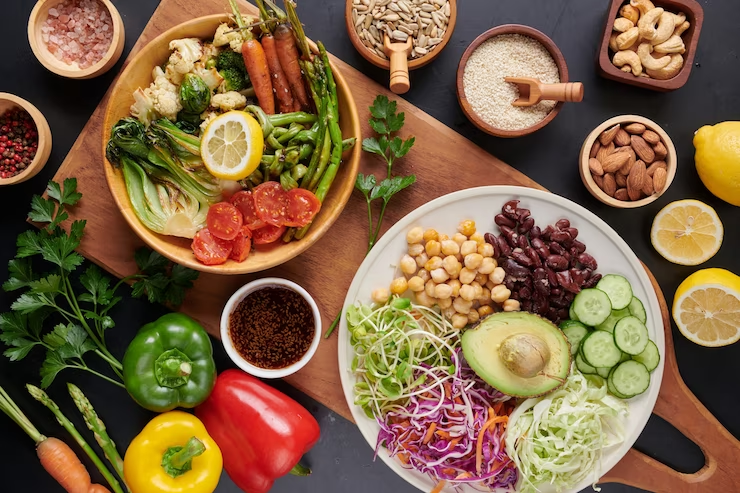
Start with tiny steps
Start by introducing minor adjustments to your present eating routine. For instance, swap out sweet snacks for fresh fruit or whole grain alternatives to refined grains like white bread.
Veggies and Fruits
Try to incorporate a variety of veggies and fruits into your meals and snacks.
Snack on raw veggies with hummus or nut butter, including a side salad with your lunch or dinner, and top your yoghurt or porridge with sliced fruits in the morning.
Choose whole grains
Rather than refined grains, choose whole grain items like whole wheat bread, brown rice, quinoa, and pasta.
These are more nutritious than their unhealthy processed equivalents in terms of fibre, vitamins, and minerals.
Prepare Meals at Home
You can manage the ingredients you use when you cook at home. Try cooking at home using natural, fresh ingredients.
Try to progressively lessen your dependency on processed and pre-packaged foods by seeking out straightforward recipes that combine real foods.
Include plant-based Proteins
Look at plant-based protein sources such quinoa, tofu, lentils, beans, and tofu.
These options can replace animal-based proteins in a variety of recipes because they are high in fibre, vitamins, and minerals.
Read the Packaging
Read the nutrition and ingredient information on food labels before buying packaged foods.
Avoid items that have artificial additives, excessive sugar, or bad fats and choose for ones with fewer, natural components.
Best Source in India
Visit local farms or farmers' markets to find fresh, seasonal produce. Explore local farmers' markets and produce. These choices can help local farms and the environment while frequently having a higher nutritional value.
Himalayan Natives!

No packaged snacks here
Packaged snacks contain unhealthy substances including refined carbohydrates, sugar, vegetable oils (like coconut oil), and vegetable fats.
Himalayan Natives have a variety of healthier substitutes instead, such as salted nuts, dry fruits, chupris and more.
You also need to ensure that the natural foods you eat are heart healthy foods that improve the functioning and strength of your heart!
Whole Grains
Highly processed refined carbs promote overeating and have very little nutritional value.
Whole grains, on the other hand, offer more nutrition and fibre, aid in weight control, maintain a healthy digestive system, and help to lower chronic inflammation.
With Himalayan Natives you can get the most natural and nutritious grains and pulses that you can incorporate into your meals.
Natural Sweeteners
It is nearly impossible to totally eliminate your desires for sugar from your diet. Therefore, instead of using sugar try substituting jaggery powder, which is a healthier option.
It promotes healthy digestion, prevents anaemia, and aids in bodily cleansing. You can also substitute natural raw honey for sugar, which is another better option.
With Himalayan Natives you can enjoy the most natural sweeteners with your teas, coffees, icecreams and more!
Spreads and vegetable oils are highly processed foods because they are created by chemical extraction. Some oils have a lot of linoleic acid, an omega-6 fat.
Good alternatives like cold-pressed coconut oil, olive oil, and natural ghee are excellent sources of the moderate quantity of good fats that the body requires.
There are many benefits to using natural ghee:
Has Good Fats.
Aids the digestive system
Builds up the immune system.
Provider of Vital Vitamins.
Inflammatory and cancer-preventing.
Lactose intolerance benefits.
Also read: Is ghee useful for healthy digestion?
The last bite
Because more people are becoming open to buying natural food products and its advantages, the movement towards healthier foods has become insurmountable.
But we are simply returning to our roots and turning to more holistic eating methods; it is not just a fad that everyone is adopting.
Here’s a delicious dish you can make on a cosy Friday night with friends! Check out the recipe on our Instagram and Facebook page.
Instead of only eliminating bad foods from our diet, we should concentrate on introducing more healthy options.
As soon as we start reaping the health benefits of adding healthier options to our diet, we naturally cease consuming bad items.
As most of the healthy foods are organic or naturally sourced foods that are high in fibre and protein, these foods help us feel satiated for longer.
So, don’t wait around for another trend to come by, work for better health and a wholesome lifestyle now with Himalayan Natives!
Frequently Asked Questions (FAQs):
1. Can I use honey as a sweetener while making Chai?
Answer: Yes! Honey is an excellent natural sweetener that can be used in amping up the taste of your morning and evening chai!
2. Can I add nuts to my cooked foods?
Answer: Yes! Adding natural nuts to your cooked foods only enhances the flavour of the dish. Try using delicious Himalayan Native’s cashews in your kichadi!
3. Is snacking on nuts and seeds a healthy habit?
Answer: A lower risk of heart disease has been related to consuming nuts and seeds in your diet. Dry fruits and nuts are brain superfoods so, yes, it’s a great snack!
 HELPFUL0 people found it helpful
HELPFUL0 people found it helpful
Related Blogs
Subscribe to Our Blogs
and never miss on the latest update!








